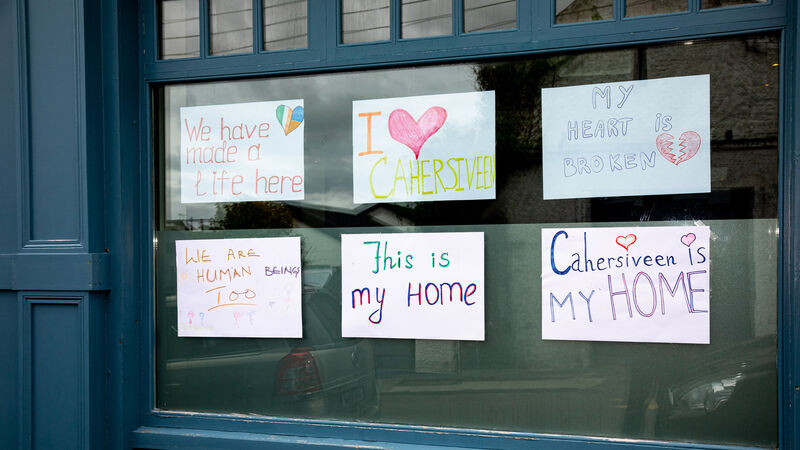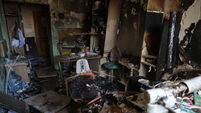Mick Clifford: Selective approach of some accommodation providers heaps trauma on refugees

Slogans and signs at the Skellig Star Hotel in Caherciveen, Co Kerry. The heavy lifting in providing solace to refugees is being disproportionally borne by some small communities, usually at the further reaches from the power centres, rather than those which might be better equipped to carry a fair load. Picture: Alan Landers
Ireland of the welcomes is now coming with terms and conditions attached.
Last Friday, 80 Ukrainian war refugees were informed that they were being moved out of Caherciveen, to be transferred in the first instance, to Tralee. These people are among 220 men, women, and children from the war-torn country living in the Skellig Star hotel in the south Kerry town.
















